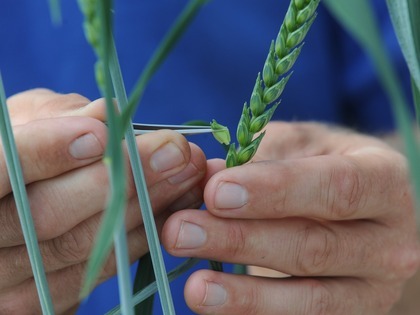
However, NIAB has expressed concern that the proposed creation of a new ACRE-2 organisation, led and staffed by permanently employed risk assessors and regulators, as the central organising node for the regulation of new products of genetic technologies, and the suggestion that this new regulatory pathway should be used as a trial for the regulation of simple gene edited products, could create unnecessary layers of additional regulation, and could deter investment in UK-based plant breeding innovation.
NIAB has urged the Government not to over-complicate the issue or to overlook the potential for the existing regulatory system for plant varieties and seeds to provide an effective, outcomes-based approach to regulation, framed around future environmental and socio-economic objectives in terms of greening, climate, health, resource-use efficiency and productivity.
NIAB firmly believes the existing regulatory framework can readily embrace plant varieties produced with new breeding techniques, and offers a proven vehicle to deliver the outcomes society expects from agriculture and crop production in the future. In addition, plant breeders already operate under the overarching requirements of UK food safety and environmental protection legislation, with an impeccable track record of safety. The Novel Food Regulations provide a further safeguard where novel compositional or nutritional characteristics are involved.
“The recent Defra consultation on proposals to regulate precision breeding techniques in the same way as conventional breeding methods, rather than as GMOs, is potentially the most significant step towards more proportionate and enabling regulation of genetic innovation for decades, after years of stagnation within the EU's dysfunctional and highly politicised regulatory framework,” explains NIAB chief executive Dr Tina Barsby.
“The suggestion that simple gene edited varieties – which could have occurred naturally or through conventional breeding – should be submitted through the same regulatory funnel as transgenic varieties does not, to us, seem like a step forward. The Defra consultation specifically seeks to correct one of the most unscientific and regressive policy developments to emerge from the EU, in classifying gene edited crops as GMOs. We totally agree that there is a need to make UK regulation of GMOs more risk-based, proportionate and enabling, but that should not involve a ‘levelling-up’ of the regulations applied to non-GM crop varieties.”
“I believe we share with the RHC a vision of a thriving UK research, breeding and farming sector, one which is neutral on technology and scale of participant and is able to access the latest innovations within a framework of proportionate regulation. But in our view we do not need substantive regulatory reform in relation to genetic technologies in agriculture, but rather to harness the political will, outside the EU, to build on existing systems - seeking improvements where appropriate - to liberate the potential of these technologies.”
“Of course the other dimension to this issue is the urgent need for the UK to develop farm-level metrics capable of objectively and consistently monitoring the balance between resource use and environmental impact per functional unit of production as the basis to define sustainable, productive agriculture in practice, to set targets, measure progress and frame the farm policy and R&D agenda. Alongside proportionate and enabling regulation, this would also send clear, long-term signals to potential investors and innovators, and remove the potential for short-term political intervention,” said Dr Barsby.
Read the Regulatory Horizons Council: report on genetic technologies
